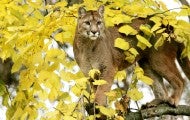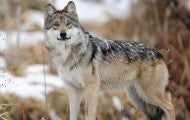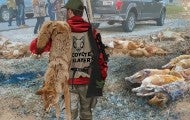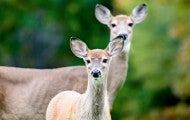Once robust, populations of cougars (also known as mountain lions or pumas) have declined drastically across most of their range in the Americas. The population decline is due to the impact of extensive hunting and predator control, in addition to continued habitat loss and fragmentation. Cougars...
Extreme weather events like wildfires can kill wild animals, either from the fire itself, through smoke inhalation or through loss of habitat. Animals who are very young, old or otherwise unable to move away quickly are particularly vulnerable. Wild animals cope with wildfires in a variety of ways...
If you want to do more to help wildlife survive and thrive on your land, you’ll want to learn about humane stewardship. For practical guidance, you can tap into the Humane Society Wildlife Land Trust’s nearly three decades of experience implementing humane stewardship on lands we protect. We’ve been...






